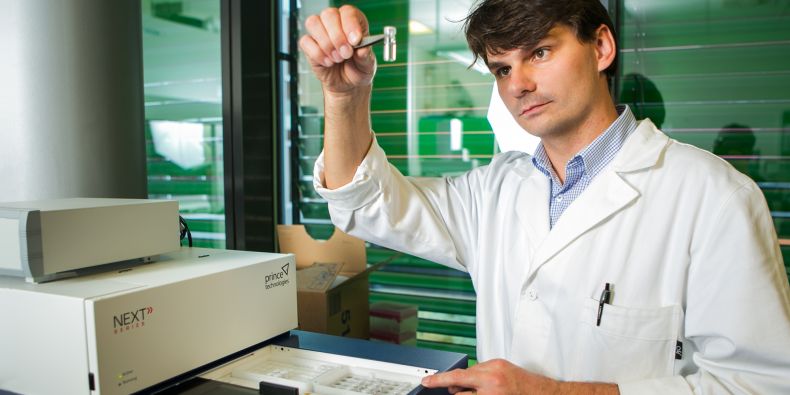Enantis, a biotechnological spin-off company of Masaryk University, has received thirty million crowns from a European programme to develop wound healing products. Thousands of companies from across the European Union compete for this grant every year, but only a fraction of them succeed.
A grant from the SME Instrument programme is awarded to about five percent of the applicants. In this particular call for proposals, there were a hundred applicants and only four winners. Enantis was able to achieve this extraordinary success thanks to extensive cooperation between various disciplines and faculties.
The applied research carried out at Enantis was started by experts from the Faculty of Medicine, who recognized a potential use for a so-called fibroblast growth factor. This is a protein used, for example, in stem cell research, as it stimulates stem cell growth. Experts presume that the factor could help with hard-to-heal wounds, such as burns or diabetic wounds. This is the focus of the Enantis research that has won the EU funding.
In recent years, MU experts have been able to discover certain important properties of the factor and “stabilize” them by introducing mutations, making the factor more suitable for biomedical application. It is crucial that the factor be able to function in temperatures around 37 degrees Celsius.
“A natural growth factor is only functional for about ten to twelve hours in these temperatures,” says Jiří Damborský from the Loschmidt Laboratories at the Faculty of Science. “Thanks to protein engineering research, which uses computer technology to find the optimal way to stabilize the protein, we have been able to find a variant of the growth factor that continues to function at 37 degrees Celsius even after two weeks.”
Research into possible uses for the growth factor was then taken over by the Enantis spin-off. At the moment, the protein is only available as a powder, which is not a form suitable for application.
Enantis applied to the SME Instrument grant programme last year as well, when it won a grant for “phase I” of the research and was awarded about 1.5 million crowns. Enantis used the grant to develop a feasibility study in cooperation with the South Moravian Innovation Centre and Pavla Odehnalová from the Faculty of Economics and Administration. This study identified regenerative medicine as the most promising area of research.
The grant is to help Enantis find a carrier that the growth hormone could be applied to and then used in wound healing. “The project also includes pre-clinical testing, which verifies the safety and effectiveness of the products,” says Veronika Štěpánková from Enantis. The grant was awarded for two years, so everything needs to be done within this period of time.
